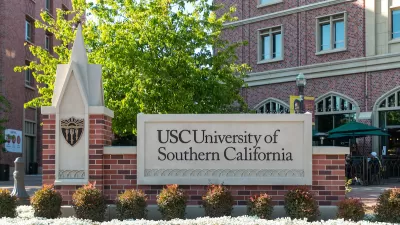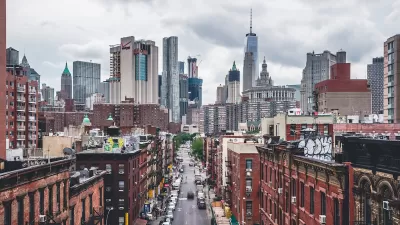Last month, politicians, energy executives, and energy experts met in Istanbul for the 23rd World Energy Congress. The event gives global leaders a chance to coordinate energy policy, discuss new ideas, and seek solutions to climate change

At previous congresses, the role of cities in energy creation, consumption, and activism was rarely discussed. This year, a new report hoped to change that. Written by Arup at the behest of event organizer the World Energy Council, the document points out that cities consume the majority of the world’s energy and house the majority of its people, but have little control over how energy is produced, distributed, or used. Urban areas matter in global energy discussions for a simple reason: they use almost two-thirds of the world’s energy and account for more than 70% of all greenhouse gases. Buildings — most of which are located, of course, in cities — consume 51% of the world’s nonindustrial energy. And cities will become even more relevant to global energy planning as urban centers grow. According to the United Nations, two-thirds of the world’s population will live in cities by 2050.
FULL STORY: How cities will lead the energy future

Maui's Vacation Rental Debate Turns Ugly
Verbal attacks, misinformation campaigns and fistfights plague a high-stakes debate to convert thousands of vacation rentals into long-term housing.

Planetizen Federal Action Tracker
A weekly monitor of how Trump’s orders and actions are impacting planners and planning in America.

In Urban Planning, AI Prompting Could be the New Design Thinking
Creativity has long been key to great urban design. What if we see AI as our new creative partner?

Florida Seniors Face Rising Homelessness Risk
High housing costs are pushing more seniors, many of them on a fixed income, into homelessness.

Massachusetts Budget Helps Close MBTA Budget Gap
The budget signed by Gov. Maura Healey includes $470 million in MBTA funding for the next fiscal year.

Milwaukee Launches Vision Zero Plan
Seven years after the city signed its Complete Streets Policy, the city is doubling down on its efforts to eliminate traffic deaths.
Urban Design for Planners 1: Software Tools
This six-course series explores essential urban design concepts using open source software and equips planners with the tools they need to participate fully in the urban design process.
Planning for Universal Design
Learn the tools for implementing Universal Design in planning regulations.
Gallatin County Department of Planning & Community Development
Heyer Gruel & Associates PA
JM Goldson LLC
City of Camden Redevelopment Agency
City of Astoria
Transportation Research & Education Center (TREC) at Portland State University
Jefferson Parish Government
Camden Redevelopment Agency
City of Claremont




























